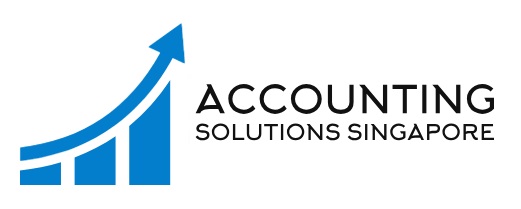
Things You Should Know about Singapore Financial Reporting Standards (SFRS)
As a business owner in Singapore, you know that accounting for your business transactions must be precise. However, you might not understand why accounting standards are such a huge deal. Only if you are the only individual seeing your business accounts, then they wouldn’t be.
Singapore regulators (ACRA and IRAS) and investors might go over your general ledgers. Following relevant accounting standards enables third parties to understand the numbers on your financial statements.
Your Singapore annual compilation services provider should be skilful to assist you on this subject.
Do you wish to know more about the international financial reporting framework? Do you like to understand further the financial reporting standards, which apply to Singapore companies?
This article will give you a quick overview of accounting standards.
1. Introducing Financial Reporting Standards (FRS)
Different stakeholders read the current state of the finances of a company. That includes suppliers, lenders, employees and business partners, both prospective and present.
All Singapore company publish their annual financial reports to their shareholders. In some situations, potential private investors of the company or business partners may request to review your financial statements before entering into a business agreement with you.
The company should provide its financial statements that follow SFRS principle to keep every party informed. They must include info about the cash flow, position, and performance of the company. In short, it must consist of all the important evidence about the financial decisions, which influence the business in question.
Stakeholders will either make favourable decisions or avoid the business and company relations with it. However, it will depend on what they see in the financial statements. Hence, the financial statements should be as precise and concise as possible.
2. What is the International Financial Reporting Standards (IFRS)?
The interconnected economies we have today require standard financial reporting. Categorized business entities have shareholders from across the globe. They must understand, monitor and evaluate how their investments are performing.
International firms must evaluate and compare the performance of their subsidiaries or overseas branches. Are you one of those venture capital funds from Singapore? Then you should investigate the financial papers of your invested startup. Your job is to understand and interpret the contents of the financial statements. Nevertheless, how can you make that possible? You need uniform financial reporting standards.
International financial reporting standards are a collection of principles that identifies how enterprises should group and present the data on the events and transactions of the company, which show in the financial statements.
3. Where do these IFRS originate?
International Accounting Standards Board (IASB) is a non-profit organization. They are the accounting standards-setting body of the International Financial Reporting Standards Foundation.
The Foundation and the IASB create the standards, govern their execution, and do changes if something isn’t working the way it’s supposed to.
The accounting framework of the Foundation is mandatory in 140 jurisdictions. You will find two groups of international standards: one for small-medium enterprises (SME) and one for corporations.
The version for SME is quite basic. It concentrates on giving data about liquidity, solvency, and cash flow.
4. Understanding Singapore FRS (SFRS)
Keep in mind that the Financial Reporting Standards of Singapore (SFRS) are substantially similar to IFRS. That set of accounting standards is composed of over fifty segments. Each of them involves a separate subject such as recognition of revenue, accounting for inventories, or providing financial statements.
One principle of the SFRS pertains to the accrual basis of accounting. That helps to make the books more indicative of the profitability of the company. What’s more, it offers you a better comprehension of the liabilities and assets of the business at the end of an accounting period.
The accrual accounting method is also rooted in the matching principle, which matches the income and its related expenditures when the transactions take place. That means revenue and expenses should be recognized in the same financial period.
It also displays the obligations to pay in the future as well as the resources on behalf of the money you’ll spend or earned.
5. What is the difference between “Singapore FRS for SE” and “Singapore FRS”?
A new company qualifying for SFRS for Small Entities (“SE”) can utilize the streamlined framework until it enlarges the size verge and keeps like that for two consecutive financial periods. The business will then must opt for the full version, SFRS.
The business on the edge of becoming excessively big for SFRS for SE must begin organizing for the transition ahead of time. The company should ensure that the accounting service provider has a qualified team to meet the new requirements if the routine accounting function is outsourced.
Either way, the transition should be well organized. Take note that the reporting expenses will increase inexorably.
You will also find other instances when it might be sensible for small businesses to use the SFRS framework and are still qualified for SFRS for SE at the same time. The first case is when the company becomes part of a local group, of which the group adopts SFRS. The second situation is when a business works with its lenders and the financial institution requests for SFRS statement statements.
What’s next? Chartered Accountants can assist you.
Now, under the Companies Act (Cap. 50), all Singapore-incorporated entities and foreign companies must comply with the requirements of the SFRS, which are the accounting standards made by the Accounting Standards Council under the Accounting Standards Act.
Accounting firms have trained Chartered Accountants who can assist you to interpret and evaluate the impact of each SFRS on your business.
Do you want to know more information about this subject?
Get in touch with our Chartered Accountants to enquire about the recent changes in SFRS and how it affects your company’s monthly or annual financial reporting to ACRA.
